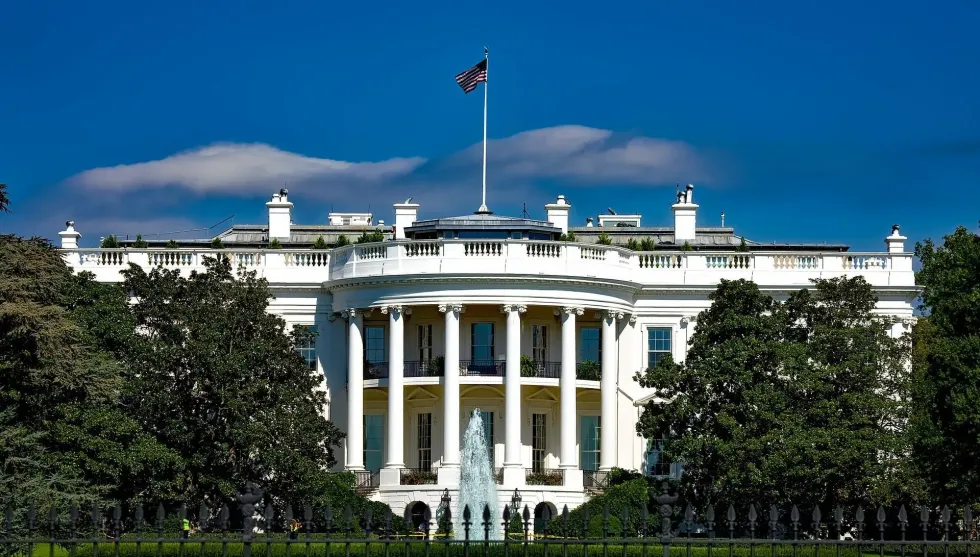1935 Facts: Trivia To Learn About What Really Happened That Year

1935 is considered the year in which the world saw too many ups and downs throughout its course.
The year 1935 is considered the year in which the 'Great Depression' peaked and the condition of the U.S. became worse. The United States' economy grew fast in the '20s, and the country's overall wealth more than doubled between 1920 and 1929, in a period known as the 'Roaring '20s'.
The stock market in New York City, which was headquartered on the NYSE (New York Stock Exchange on New York City Wall Street), was a hotspot of reckless speculation, with investors ranging from billionaires to cooks and janitors.
As a result, the stock market grew rapidly, reaching a high in August 1929. One of the four waves of banking crises occurred in the fall of 1930 when a large number of investors lost trust in the soundness of their banks and demanded cash deposits, forcing banks to liquidate loans to replenish their low cash reserves.
Bank runs (withdrawal of deposits in large amounts) plagued the United States once again in the springtime of 1931 and the fall of 1932.
By early 1933, several institutions had closed their doors. However, the country was in the depths of the Great Depression in 1932, and over 15 million people were laid off (upwards of 20% of the population).
When the Great Depression started, the United States was the only industrialized nation in the world without unemployment insurance or social security.
In 1935, Congress established the Social Security Act, which provided Americans with unemployment, disability, and retirement benefits for the first time. In addition to the well-known retirement benefits, there is a slew of other advantages to social security that make it important even today.
There are benefits for the injured, survivors, and those who need medical attention.
In terms of pre-retirement benefits, both employees and their families benefit from Social Security.
These are the advantages that might help you plan for the future and prepare for what might happen.
Additionally, specific groups of licensed self-employed (generally with the exclusion of surgeons), farm self-employed, state and local government employees, members of the uniformed services under a retirement system, and farmers were all added to the various conditions under Social Security legislation passed in 1954 and 1956.
In 1935, Irène Joliot-Curie and Frédéric Joliot-Curie won the Nobel Prize in Chemistry. The Nobel Peace Prize was won by Carl von Ossietzky. James Chadwick won the Nobel Prize for Physics, and Hans Spemann won the Nobel Prize for Physiology or Medicine.
If you like reading about 1935, you should read further to learn about it in detail. There is a lot of such information available on what major events happened in 1935, and lots of questions have been answered for you.
Fun Facts About 1935
The Great Depression, lasting from August 1929 to March 1939, was described in 1935 as the deepest and lengthiest economic crisis in the history of the Western industrialized world up to that time. The economy expanded by 8.9%, unemployment declined to 20.1%, prices increased by 3%, and the government debt rose to $29 billion.
The SSA (Social Security Act) was passed into law by President Franklin D. Roosevelt. This Act created old-age benefits for pensioners, unemployment benefits, assistance for dependent women and babies, casualties of work-related accidents, blind individuals, and people with physical impairments.
The United States government began to collect the Social Security levy from employees in 1937 and initiated payments in 1940 under the Act.
The NLRA (National Labor Relations Act) was also passed into law by President Roosevelt. The NLRA (National Labor Relations Act), often known as the Wagner Act, protects workers' rights to establish unions and participate in collective bargaining.
The Black Sunday dust storm displaced an astounding 300 million ton (272 million met ton) of topsoil in western Oklahoma, New Mexico, Texas, and Colorado. Drivers were forced to seek cover in their automobiles, while other inhabitants hunkered down in tornado shelters, basements, fire stations, and barns, as well as beneath mattresses.
Drought, dried-out topsoil, and strong winds combined to enable the dust to fly freely and at incredible speeds.
The greatest storm to ever strike the United States touched down in the upper Florida Keys on Labor Day, killing 423 people and destroying the Key West railroad.
Xavier Cugat, Bing Crosby, Fred Astaire, and His Waldorf-Astoria Orchestra; Benny Goodman, Duke Ellington, and His Orchestra; Tommy Dorsey and His Orchestra; Guy Lombardo, Billie Holiday and his Royal Canadians; Freddy Martin and his orchestra; Ray Noble and his orchestra; Ozzie Nelson and his orchestra; Teddy Wilson, Fats Waller and his orchestra; Joe Venuti and his orchestra; Victor Young and his orchestra were among 1935's popular music groups and artists.
President Roosevelt proposed the Wealth Tax Act (Revenue Act of 1935) in 1935 as a way to redistribute wealth. The law levied a 79% income tax on earnings of over $5 million. Because it was such a large income in the '30s, the maximum tax rate affected literally one person: John D. Rockefeller.
Although released in 1984, 'Indiana Jones And The Temple Of Doom' was set in 1935, whereas 'Raiders Of The Lost Ark' was based in 1936. The sequel to 'Indiana Jones And The Temple Of Doom' is indeed a prequel to the first film.
Welles made his CBS Radio debut on 'The March Of Time' on March 22, 1935, playing a scene from 'Panic' for a news broadcast about the theatrical show. Welles is known for his 1938 'War Of The Worlds' broadcast.
Orson Welles' famous 'War Of The Worlds' broadcast sparked alarms throughout the country by 'reporting' a Martian invasion on Earth. The tale behind this amazing broadcast is as interesting as the effect it had on its listeners when it first aired.
The legendary singer and actor Elvis Presley was born in 1935. He is known as the 'King of Rock and Roll' or simply 'the King' and is known as one of the most crucial cultural symbols of the 20th century.
His energizing performances of songs and interesting performing style, along with a powerful blend of influences across color lines during a turning point in racial relations, catapulted him to fame as well as controversy.
Hummel figurines, Arrid deodorant, Kit Kat chocolates, Hostess potato chips, paper shredders, Sterzing's potato chips, nylon, Preparation H, and the Wonderbra, all debuted in 1935.
Amelia Earhart made history when she flew alone from Hawaii to California, making her the first person to do so.
Historical Facts About 1935
There are many historical facts to read and learn about from 1935. Why don't you take a look?
In 1935, Franklin Delano Roosevelt served as president of the United States.
Shenandoah National Park was formed in Virginia, about 75 mi (120.7 km) from Washington, DC, while Dry Tortugas National Park was founded in the Florida Keys.
From Lake Champlain, the USS Philadelphia, a warship built during the American Revolution, was raised.
The Ladby ship burial was found in Denmark, and it was the country's first and only ship burial site.
During a gunfight in Florida, the FBI killed the Barker Gang, including Ma Barker. During a three-year spree that started in 1931, the Barker-Karpis Gang was allegedly responsible for multiple kidnappings, 10 murders, and more than $1 million in thefts.
The world's earliest parking meters were put in the commercial area of Oklahoma City.
Coopers Inc. started selling the world's first men's briefs in Chicago, frequently known as 'jockeys'.
The board game 'Monopoly' was first sold in the United States by Parker Brothers.
Baldwin overtook MacDonald as Prime Minister in 1935, and he won the 1935 general election with a huge majority. During this period, he supervised the start of the British military's rearmament process and King Edward VIII's abdication issue under his Prime Minister's rule.
The Hoover Dam in Nevada was inaugurated by the United States and dedicated by President Franklin D. Roosevelt.
On August 15, 1935, the great pilot Wiley Post sadly died with his good friend, the renowned comedian and pop culture icon Will Rogers, in a plane crash in Point Barrow, Alaska. The lone airport in America's northernmost city, Barrow, Alaska, is named after comedian Will Rogers, who died in a plane accident there in 1935.
When the China Clipper delivered mail over the Pacific Ocean, the globe got even smaller.
The world community was advancing toward World War II during the '30s. As a precursor to the Second Sino-Japanese War, China ceded Korea, Manchuria, and northeastern China to the Japanese.
As a result, Mao Zedong issued a manifesto advocating a unified front against Japanese imperialism in China. Libya was formed in 1935 when the Italian colonies of Tripoli and Cyrenaica were merged. At the conclusion of the year, Italy attacked Ethiopia in an oil-fueled conflict.
Henry Fonda made his film debut in 'The Farmer Takes A Wife', which is set mostly in Rome and New York, while Porky Pig made his debut in 'I Haven't Got A Hat'.
NBC radio aired the new comedy, 'Fibber McGee and Molly', to make people giggle at its antics.
Penguin publication, freshly issued paperback novels for people to enjoy the warmth and comfort of books.
United Artists published the famous Mickey Mouse animation movie 'The Band Concert' in 1935. It was also the first Disney picture to be released in color.
The events of 1935 in the United Kingdom include King George V's silver jubilee, a general election scheduled for November, as well as leadership changes in both the Conservative and Labor parties.
It also included the foundation of the Ramblers' Association, the Merlin aircraft engine of Rolls-Royce taking off on its maiden flight at Hucknall Aerodrome, the mandate of the driving test, and the first-ever use of cat's-eye reflectors on British highways.
In Europe, the Nuremberg Laws were enacted in September 1935, which stripped Jewish people of their citizenship privileges and converted them to 'subjects.' The rules prohibited Jewish people from marrying those who were not Jewish and having extramarital affairs.
'Aryan' women under the age of 35 could not be employed as servants by Jewish people. After adopting Hitler's plan, Mussolini invaded Ethiopia in 1935, prompting the League of Nations to declare Italy in breach of its anti-aggression stance.
The Quetta earthquake struck British India in 1935 and had a maximum Mercalli rating of X (Extreme), killing 30,000-60,000 people. The Government of India Bill became law in 1935, and it called for creating a democratic constitution.
Huey Long, a U.S. Senator from Louisiana, held the record for the longest one-man filibuster in history, clocking in at 1512 hours and 150,000 words on June 13. Senator Long was slain in Baton Rouge, Louisiana, on September 8, by Carl Weiss.
Farmers were paid to grow soil-building crops under the SCDA (Soil Conservation and Domestic Allotment Act).
The Supreme Court concluded in Schechter Poultry Corporation that the National Industrial Recovery Act, a key component of President Franklin D. Roosevelt's New Deal, was unconstitutional.
Henrietta Leaver of Pittsburgh, Pennsylvania was crowned Miss America.
Haile Selassie I, Ethiopia's Emperor from 1930 until 1974, was named Time magazine's 'Person Of The Year.'

Facts About Innovations In 1935
In 1935, radar was invented by Robert Watson-Watt.
Nylon was created by Dr. Wallace Hume Carothers, a scientist for the DuPont Corporation.
The Dempster-Dumpster was invented by George Dempster, an American businessman and inventor. It is a commonly used waste container that can be automatically emptied into garbage trucks.
Radios were a widespread feature in American households in the '20s after first being launched during World War I. Over the years, dozens of radio stations have sprung up.
News, serial tales, and political speeches were generated and transmitted by these channels. Advertising space was interwoven with entertainment, just as it was in print media.
Advertisers did not have to rely on active engagement from customers, as they did with magazines and newspapers, since they could reach out to anybody within listening range of the radio. A larger audience, on the other hand, meant advertising had to be more cautious and careful, so as not to insult anybody.
Radio transmission was the most cost-effective kind of amusement, and it gave considerably superior amusement than what most people were used to.
As a consequence, its popularity soared in the late '20s and early '30s, with 60% of American homes owning radios by 1934. They were also installed in 1.5 million vehicles.
Radio's golden age was the '30s. It was so successful that cinemas were afraid to open until the wildly popular 'Amos 'n Andy' performance had ended.
San Francisco's Market Street Railway started employing trackless trolleys.
Facts About Sports In 1935
The NFL champions were the Detroit Lions, the World Series winners were the Detroit Tigers, and the Stanley Cup winners were the Montreal Maroons.
At Forbes Field in Pittsburgh, Pennsylvania, Babe Ruth hit his 714th and last career home run.
The Philadelphia Phillies and the Cincinnati Reds played the first nighttime game (MLB) at Crosley Field in Cincinnati, Ohio, under electric lights.
Bucknell defeated the University of Miami by 26-0 in the inaugural Orange Bowl game, which was held in Miami. Similarly, the inaugural Sugar Bowl was held in New Orleans, with Tulane defeating Temple with a score of 20-14.
The Detroit Tigers defeated the Chicago Cubs (4-2) to win their first World Series.
On May 25, 1935, at the Big Ten Championships, Jesse Owens, then 21 years old, set a world record by averaging a world record every nine minutes.
Five world-leading marks and one world-equaling performance were given by him, all while nursing a significant injury that forced his coach to contemplate pulling him out of the meet at the last minute.
Mamie 'Peanut' Johnson, a professional baseball player from America, was one of the three women to perform in the Negro leagues, and the first female pitcher born.
Here at Kidadl, we have carefully created lots of interesting family-friendly facts for everyone to enjoy! If you liked our suggestions for 1935 facts: trivia to learn about what really happened that year, then why not take a look at 1928 facts or 1940 facts.
We Want Your Photos!
More for You
Bachelor of Arts and Law specializing in Political Science and Intellectual Property Rights

Anusuya MukherjeeBachelor of Arts and Law specializing in Political Science and Intellectual Property Rights
With a wealth of international experience spanning Europe, Africa, North America, and the Middle East, Anusuya brings a unique perspective to her work as a Content Assistant and Content Updating Coordinator. She holds a law degree from India and has practiced law in India and Kuwait. Anusuya is a fan of rap music and enjoys a good cup of coffee in her free time. Currently, she is working on her novel, "Mr. Ivory Merchant".
Disclaimer
1) Kidadl is independent and to make our service free to you the reader we are supported by advertising. We hope you love our recommendations for products and services! What we suggest is selected independently by the Kidadl team. If you purchase using the Buy Now button we may earn a small commission. This does not influence our choices. Prices are correct and items are available at the time the article was published but we cannot guarantee that on the time of reading. Please note that Kidadl is a participant in the Amazon Services LLC Associates Program, an affiliate advertising program designed to provide a means for sites to earn advertising fees by advertising and linking to Amazon. We also link to other websites, but are not responsible for their content.
2) At Kidadl, we strive to recommend the very best activities and events. We will always aim to give you accurate information at the date of publication - however, information does change, so it’s important you do your own research, double-check and make the decision that is right for your family. We recognise that not all activities and ideas are appropriate for all children and families or in all circumstances. Our recommended activities are based on age but these are a guide. We recommend that these ideas are used as inspiration, that ideas are undertaken with appropriate adult supervision, and that each adult uses their own discretion and knowledge of their children to consider the safety and suitability. Kidadl cannot accept liability for the execution of these ideas, and parental supervision is advised at all times, as safety is paramount. Anyone using the information provided by Kidadl does so at their own risk and we can not accept liability if things go wrong.
3) Because we are an educational resource, we have quotes and facts about a range of historical and modern figures. We do not endorse the actions of or rhetoric of all the people included in these collections, but we think they are important for growing minds to learn about under the guidance of parents or guardians.







